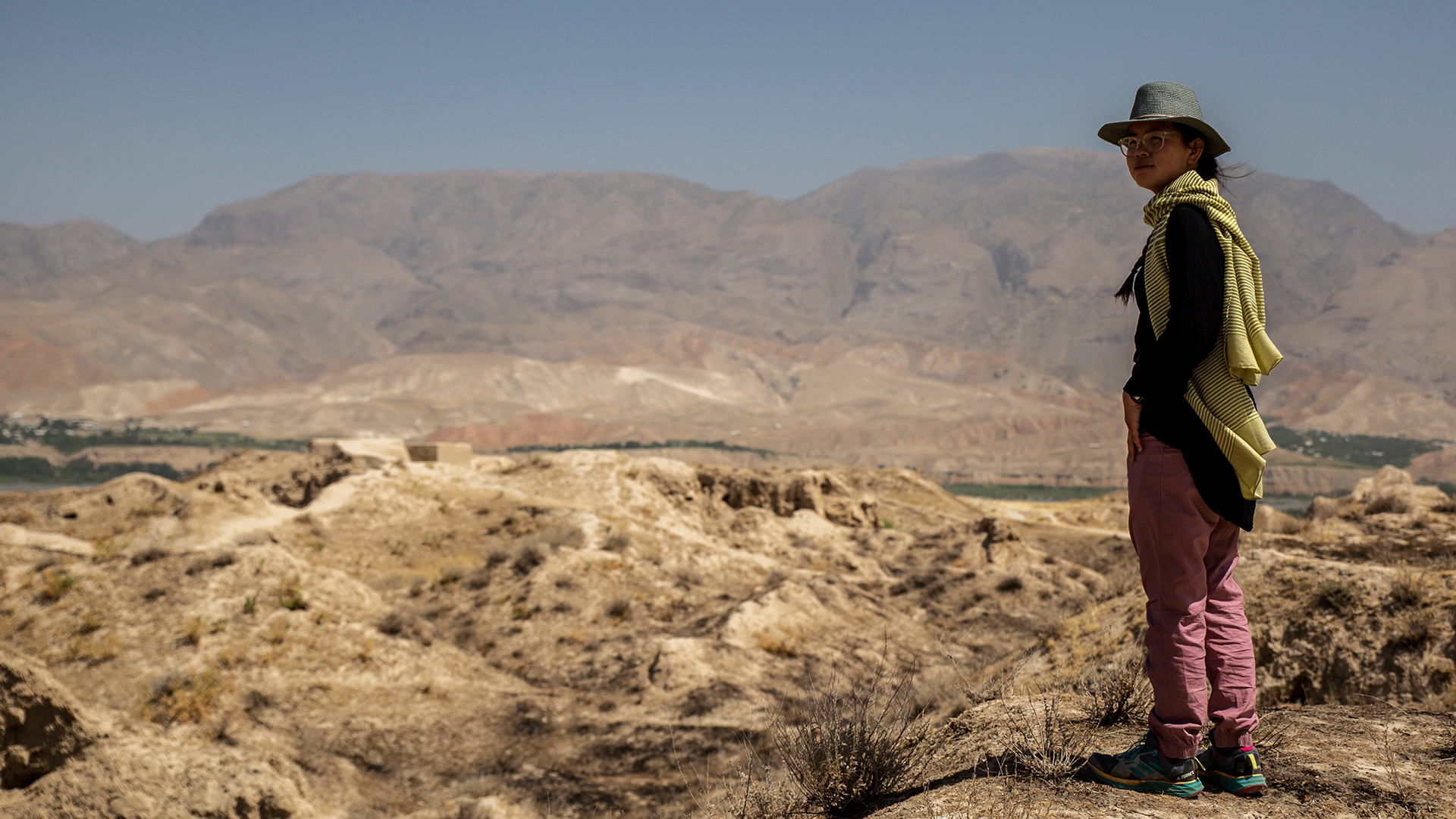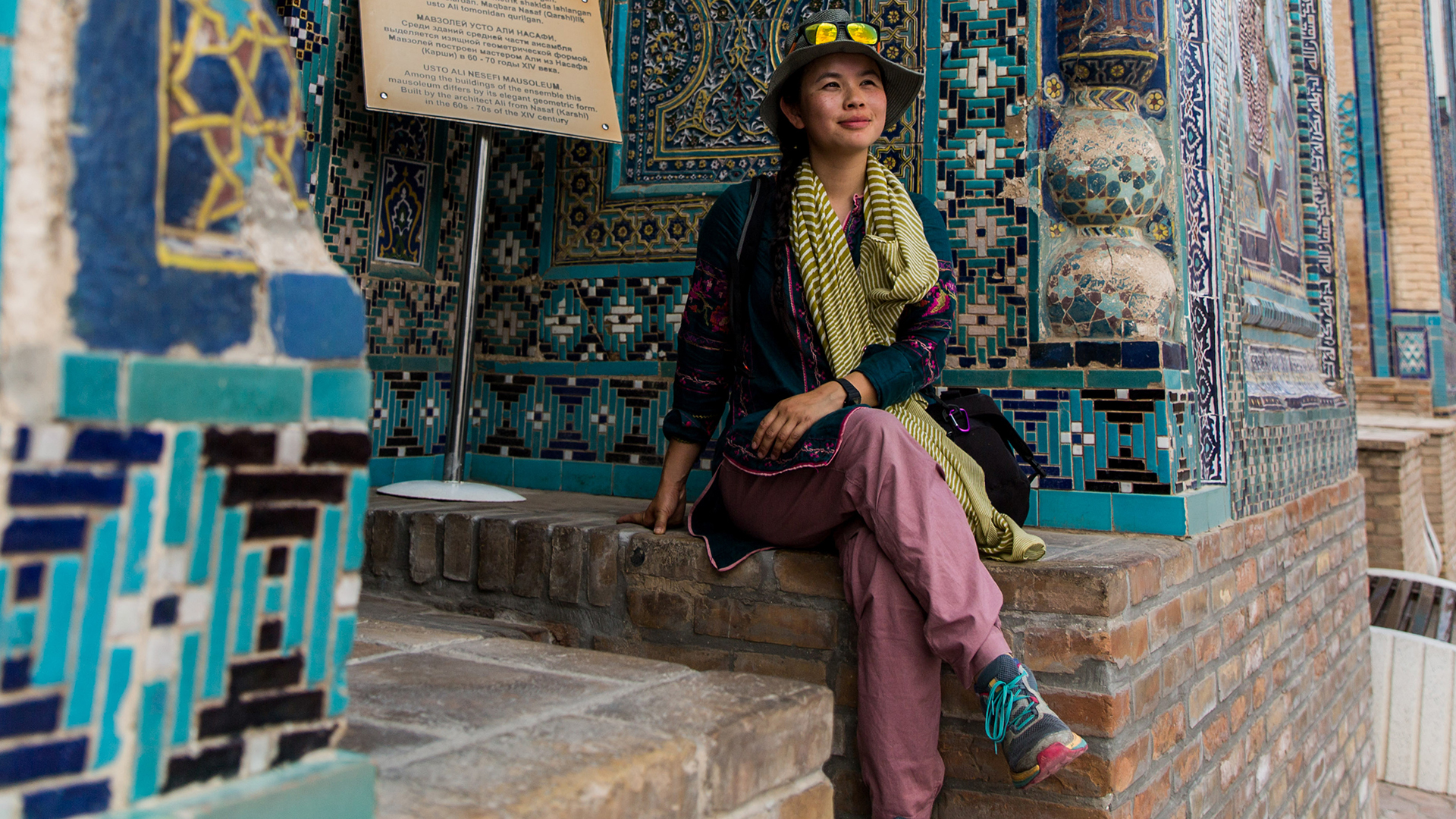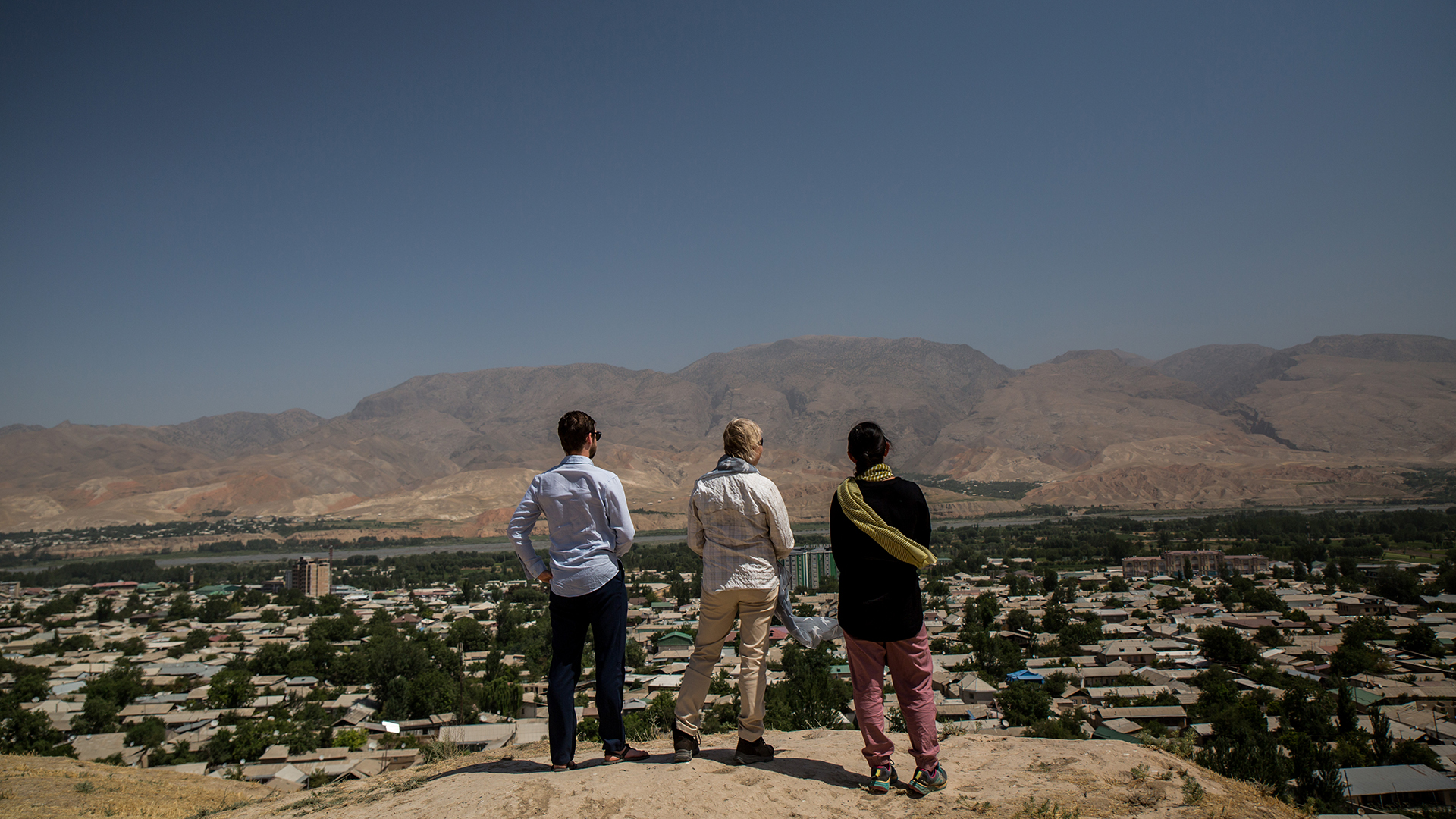
Meet the reviewer
Patagonia Women’s Hampi Rock Pants: first impressions
Patagonia Women’s Hampi Rock Pants are a lightweight pair of pants that combine natural materials with recycled polyester and elastane to make comfy rock-climbing or hiking pants. Designed with rock climbing in mind (but also suitable as everyday wear on the trails), the pants have a high waistband, flat pockets, diamond gusset and an articulated cut in the leg that allow for clear visibility of your feet without lots of excess material. The slightly shorter leg makes them perfect for a day of climbing, traveling or hiking in hot weather.
• List price: $99 / £90 / €100
• Weight: 241g / 8.5oz (size S)
• Sizes: Regular and short leg, US sizes 0 to 22
• Colors: Sienna Clay / Ink Black / Endless Blue / Cliffs and Waves / Herring Gray / Trip Brown / Intertwined Hands: Smolder Blue / Evening Mauve
• Material: 53% organic hemp/44% recycled polyester/3% spandex plain weave
The Women’s Hampi Rock Pants are marketed as a classic cragging/boulder climbing trouser, thanks to a regular sizing that fits at the waist but isn’t super tight on the seat, plus there’s a nod to the bouldering crowd with a specific pocket that fits a boulder brush. But that shouldn’t limit the possibilities as these are a fantastically versatile and comfortable pair of pants for cultural exploration, thanks to the full leg coverage and ease of wear in hotter temperatures.
Patagonia Women’s Hampi Rock Pants: on the trails
The Patagonia Women’s Hampi Rock Pants are made with an organic hemp material, which allows the skin to breathe and moisture to wick easily, ensuring legs don't overheat. This maximizes the wear of the pants as they are surprisingly versatile for hot weather travel, offering good ventilation as well as coverage when exposing legs is less culturally acceptable. Traveling in Tajikistan, I wanted a pair of pants that could be worn in the city as well as in more rural provinces, so the trousers were great worn under a long tunic-like top. I found them a brilliant addition to my wardrobe in a culture that was more conservative, choosing trousers that had a slightly looser fit over skimpy or figure-hugging outdoor clothing.

When buying climbing trousers, it’s important to choose a fabric that doesn’t restrict high steps or block your view of foot placements. The Hampi Rock Pants are a perfect combination of 53% hemp, 44% recycled polyester and 2% elastane, which gives unrestricted mobility and resistance against tears, with articulated knees for high stepping, stemming and heel hooking. They also have an elasticated cuff that makes rolling them up much easier, and a small drawstring cord at the waist which can be adjusted for a closer fit.
I found the Hampi Rock Pants comfortable to wear when out climbing and walking and had the opportunity to test these through rock climbing and hiking in a hot, lush alpine climate in the Fann Mountains where the altitude was between 2500m/8200ft and 4000m/13,123ft. I also wore these trousers in temperatures ranging from 18°C / 64°F – a warm summer’s afternoon in the UK – to 48°C / 118°F, in a boiling car driving along the Silk Road to explore the lesser-visited corners of the mountains on dusty trails. Comfort wise, the pants allowed my legs to breathe, and they didn’t feel too sweaty.

I wear a US size 6 in Patagonia clothing, which equates to a US size 10, and find it feels true to size, even if you have an active body type with more curves. I tested the trousers in a relatively hot, conservative and rural country, so it was important that the pants could be worn with tops that were long enough to skim over my body.
Patagonia is a known leader in transparency around its manufacturing practices, so it’s no surprise that most of the fabric’s construction is made using recycled materials. Using recycled polyester certified by Ocean Cycle, Patagonia is clearly conscious about using recycled materials to close the loop in sustainable manufacturing, using materials from coastal communities at risk of plastic pollution. The pants also use an elastane fabric that is PFC-free, to minimize the amount of harmful chemicals added to the environment.







